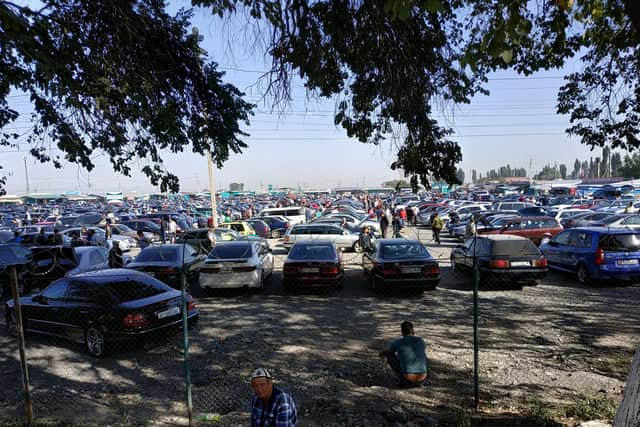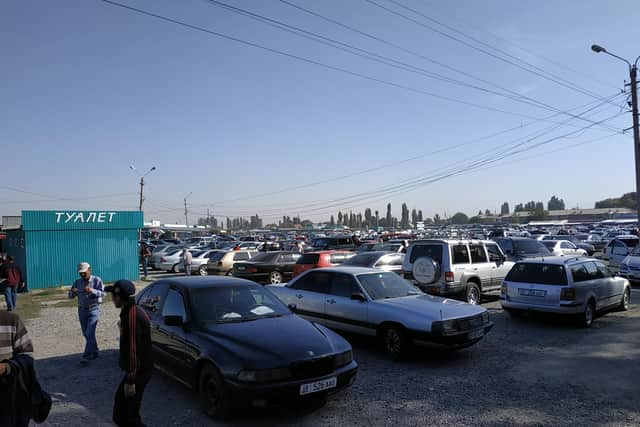COP26: Why cars from the Western World are being dumped in Kyrgyzstan
Many of those imported cars had already failed to meet minimum safety and environmental standards in their home countries.
Bishkek, Kyrgyzstan’s capital city, which has an area of 160,000sqkm, typically has a capacity to take in only 40,000 cars. However, the city currently has about 500,000 vehicles, so experts highlight these old cars are making air pollution worse, thus negatively impacting climate change.
Advertisement
Hide AdAdvertisement
Hide Ad

Only a 30-minute drive to the west of Bishkek, the largest car market in Central Asia is located on a former farmland.
Here about 30 years ago, local villagers used to farm crops. Now this seemingly endless field has become an open-air market for thousands of used vehicles from abroad.
Meanwhile, this open-air vehicle bazaar is causing enormous problems to Bishkek and the whole country – air pollution.
In the first week of January, IQAir, a technology company that publishes data on air pollution, recorded Bishkek as having the highest air quality index (AQI) values in the world for consecutive days, overtaking other notoriously polluted cities, such as Delhi and Dhaka.


The level of toxic particles in the air reached 640 AQI. The maximum AQI level recorded in London is 122.
Some local experts and government officials state two reasons causing the pollution in the city are burning coal and carbon dioxide emitted from the old cars.
Emission from cars is badly affecting the health of locals. According to Burul Jusurova, a doctor at the Center for Epidemiological Diseases, respiratory illnesses in the city increased dramatically:
“In the last five years, the number of respiratory diseases among adults was 22.3 per cent, and among children 48.6 per cent, which is extremely high,” Dr Jusurova said.
Advertisement
Hide AdAdvertisement
Hide Ad

"Unfortunately there is no laboratory in the country to study the impact of toxic emissions from cars on local’s health. We are just collecting patients’ statistics.”
Back in the car market and former farmland, everyone can hear the announcement from the radio station, advertising catalytic converters from cars at a high price. As soon as old cars are imported into Kyrgyzstan, local people sell their catalytic converters and this dark market has been active for many years in Kyrgyzstan.
The possibility of switching to electric cars in Kyrgyzstan is very slim. In the country with a population of 6.5 million, there are less than 20 electric cars. In the past two years, only about a thousand hybrid vehicles have been purchased.
Almost 60 per cent of cars on the streets of Bishkek date back to 2000 or even to 1995, with old engines and no air purifiers. According to official data, about 1.5 million cars are registered officially from 2012 to 2020. More than half a million of those cars were manufactured 15 or 20 years ago in developed countries.
In addition, the problem of the poor quality of gasoline has a tremendous impact. There is no oil production in the country.
And there is no doubt the emissiona in Bishkek will reach developed countries because the atmosphere doesn’t have borders.
- Baktygul (Betty) Chynybaeva is a health and environmental correspondent for Azattyk Media.
She also runs a radio program ‘Green Planet’ twice a month. Ms Chynybaeva is a fellow with the Climate Change Media Partnership and is attending COP26. This article is part of The Scotsman and Earth Journalism Network partnership – set up by global non-profit organisation Internews.
Comments
Want to join the conversation? Please or to comment on this article.
